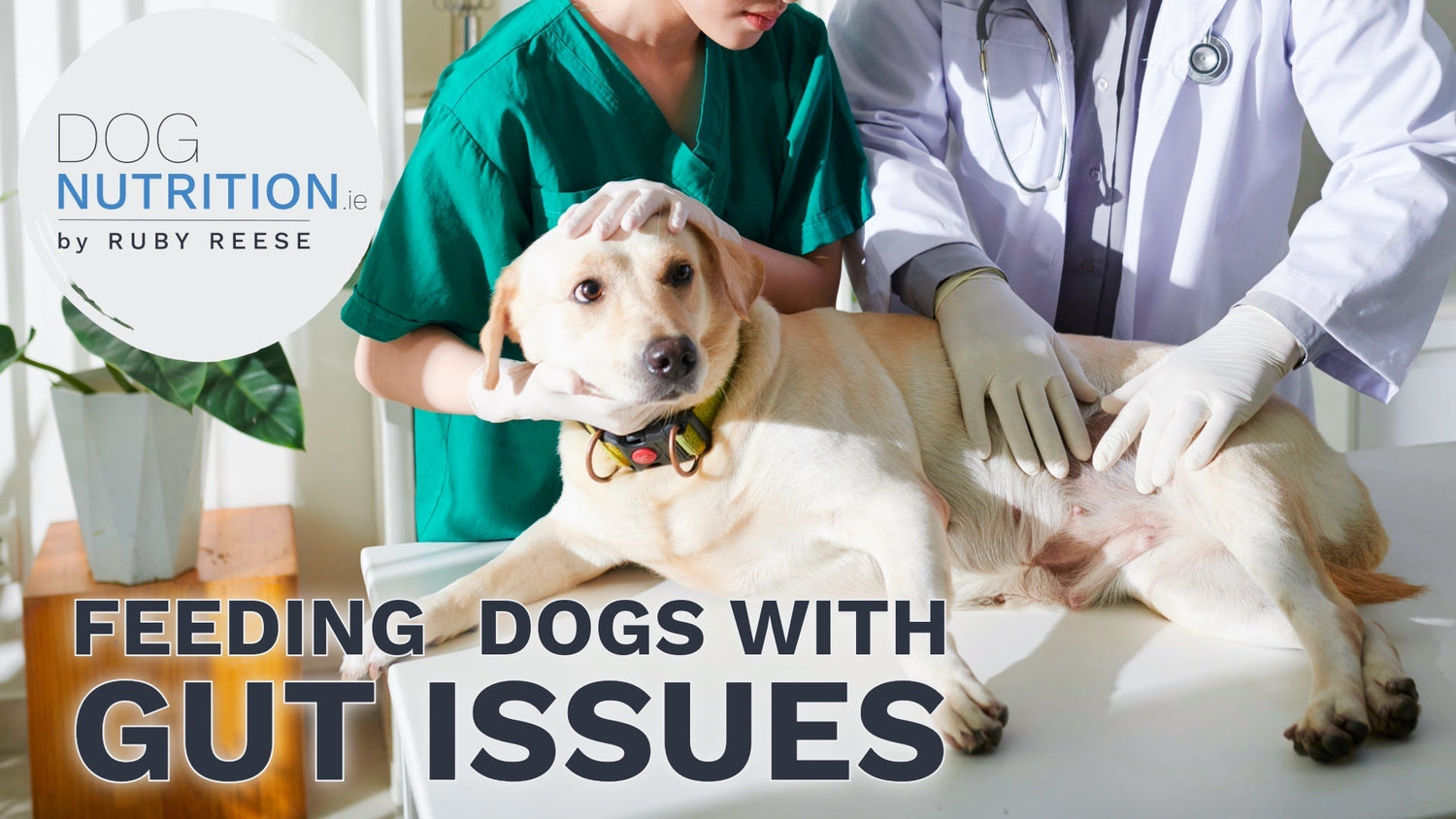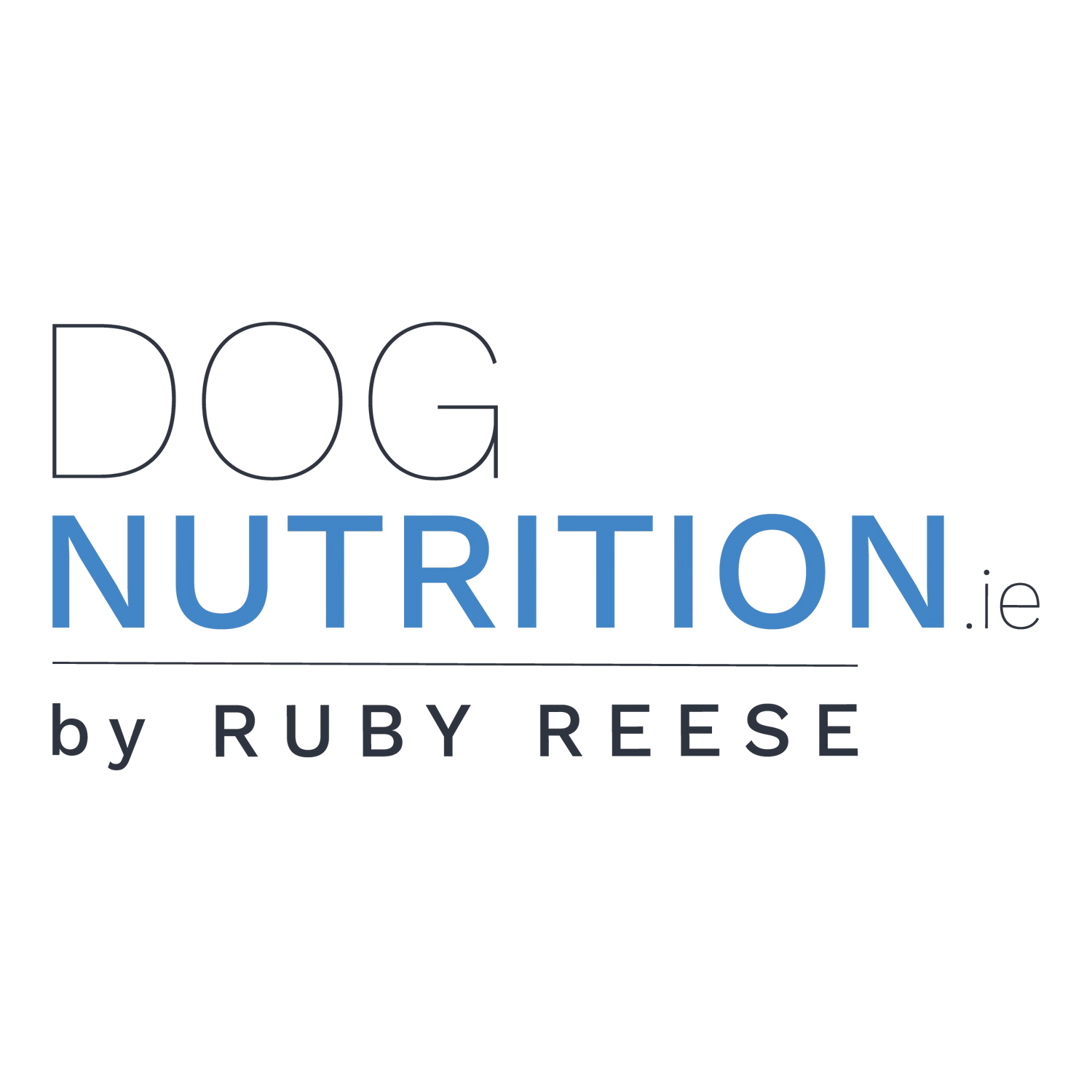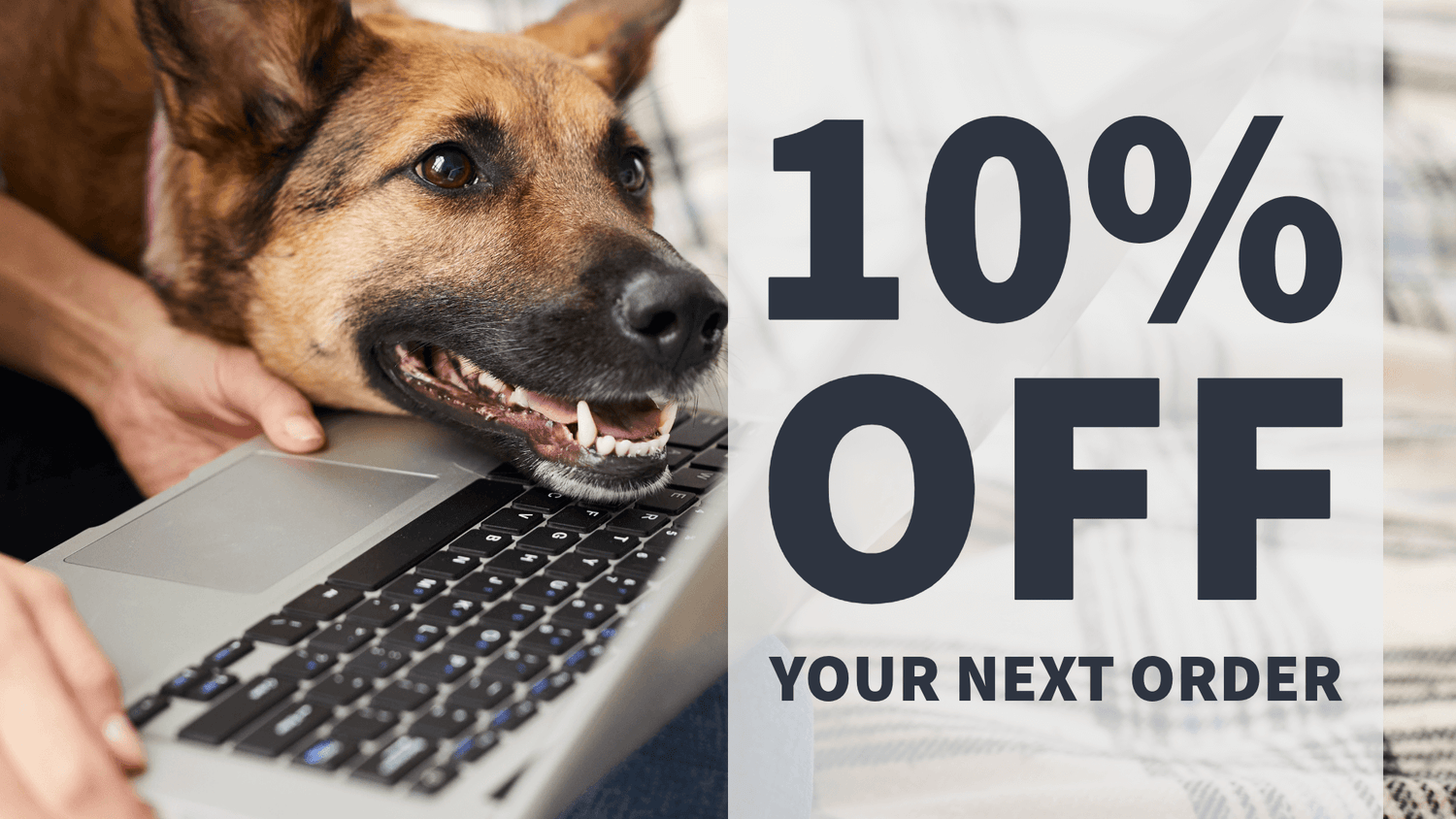Why Consulting a Canine Nutritionist Can Benefit Dogs with Gut Issues
Digestive health is at the core of your dog’s overall well-being. When the gut isn’t functioning properly, it can lead to a cascade of problems - from chronic diarrhoea and vomiting to nutrient deficiencies and low energy. For pet owners, ongoing gut issues can be frustrating, confusing, and heartbreaking.
While veterinarians diagnose underlying conditions and provide medical treatments, a canine nutritionist plays a critical role in designing diets that support digestive health. By tailoring nutrition to your dog’s needs, they can help reduce symptoms, improve gut function, and restore comfort at mealtimes.
In this article, we’ll explore common gut issues in dogs, why diet is so essential for digestive health, and how a canine nutritionist can provide expert guidance to help your dog thrive.
Understanding Gut Issues in Dogs
The canine digestive system is responsible for breaking down food, absorbing nutrients, and maintaining immune health. When it isn’t working as it should, symptoms can vary widely.
Common signs of gut issues include:
- Chronic or intermittent diarrhoea
- Vomiting or regurgitation
- Gas and bloating
- Frequent stool changes (soft, loose, or inconsistent)
- Weight loss or difficulty maintaining weight
- Poor coat quality or low energy
Potential causes include:
- Food intolerances or sensitivities
- Inflammatory Bowel Disease (IBD)
- Dysbiosis (imbalance in gut bacteria)
- Exocrine Pancreatic Insufficiency (EPI)
- Parasitic or bacterial infections
- Stress-related gut dysfunction
Because gut health is complex, nutrition is often the first - and most powerful - tool for management.
Why Diet Matters in Gut Health
The gut is directly influenced by what your dog eats. Food can either fuel inflammation and irritation or soothe and nourish the digestive tract.
Key dietary goals for dogs with gut issues include:
- Improving digestibility to reduce strain on the digestive system
- Supporting a healthy gut microbiome with appropriate fibres, probiotics and prebiotics
- Reducing triggers such as certain proteins, fats, or additives
- Maintaining nutrient balance to prevent deficiencies from chronic malabsorption
- Encouraging consistent stool quality and comfort
But because gut issues vary from dog to dog, a one-size-fits-all diet rarely works - this is where a canine nutritionist can add immense value.
How a Canine Nutritionist Can Help
A canine nutritionist specialises in designing evidence-based diets that meet medical and lifestyle needs. For dogs with gut issues, they can provide structured, individualised support in ways that generic diets cannot.
1. Identifying Dietary Triggers
Some dogs develop digestive upset when exposed to specific proteins, grains, or food additives. A nutritionist helps identify these triggers through:
- Careful ingredient elimination and reintroduction
- Food trials using novel or hydrolysed proteins
- Guidance on how to avoid hidden sources of problem ingredients
This structured approach saves time, money, and frustration compared to random trial-and-error feeding.
2. Creating Highly Digestible Diets
When the gut is sensitive, digestibility can be incredibly important. Nutritionists select ingredients that are gentle on the digestive system, such as:
- Lean proteins
- Easily digestible carbohydrates
- Appropriate amounts of fat, carefully chosen to avoid overloading the gut
They also ensure that diets remain nutritionally complete despite simplification.
3. Supporting the Gut Microbiome
The gut microbiome, the community of bacteria in the digestive tract, plays a crucial role in digestion, immunity, and inflammation. Dysbiosis (imbalance in gut bacteria) is linked to many digestive disorders.
A canine nutritionist may recommend:
- Prebiotic fibres (such as chicory root inulin) to feed beneficial bacteria
- Probiotics, carefully selected to restore microbial balance
- Individualised diets that encourage microbial diversity and gut resilience
This holistic approach can help stabilise chronic gut issues over time.
4. Tailoring Fibre Intake
Fibre can either soothe or aggravate digestive problems depending on the dog. Some dogs benefit from soluble fibre to regulate stool, while others require reduced fibre for better absorption.
A nutritionist evaluates stool quality, gut function, and lab results to adjust fibre types and levels appropriately - something that’s difficult to manage without expertise.
5. Managing Chronic Conditions
Some gut issues are part of long-term medical conditions such as:
- Inflammatory Bowel Disease (IBD)
- Exocrine Pancreatic Insufficiency (EPI)
- Chronic colitis
In these cases, nutritionists can collaborate with vets to design diets that complement medical treatments (like enzyme replacement for EPI or immunosuppressants for IBD), ensuring comprehensive care.
6. Guiding Home-Cooked Diets
Many pet parents turn to home-cooked diets when commercial foods fail, but balancing homemade meals for dogs with gut issues is complicated. Without expert input, these diets often lack essential nutrients.
A canine nutritionist can:
- Provide precise recipes designed for sensitive guts
- Recommend supplements to prevent deficiencies
- Adjust meals as symptoms change or improve
This allows pet owners to feel confident that homemade feeding is both safe and therapeutic.
7. Navigating Commercial Diets
The pet food market is filled with “sensitive stomach,” “grain-free,” and “limited ingredient” options. But not all are truly suitable for dogs with chronic gut issues.
A nutritionist helps by:
- Evaluating ingredient lists and quality control standards
- Identifying reliable brands that prioritise digestibility and appropriate ingredients
- Teaching pet owners how to critically assess food claims
This guidance prevents wasted time and money on diets that don’t help - or that may even make symptoms worse.
Benefits for Pet Owners
Working with a canine nutritionist brings peace of mind and practical benefits:
- Clarity: No more guessing which foods may work.
- Confidence: Assurance that the diet is safe, balanced, and effective.
- Support: Ongoing adjustments as your dog’s gut health changes.
- Relief: Fewer flare-ups, less mess, and a happier, more comfortable dog.
Instead of constantly switching foods in frustration, you’ll have a clear, professional plan tailored to your dog’s needs.
Practical Tips for Getting Started
If your dog struggles with chronic gut issues, here’s how to prepare for working with a canine nutritionist:
- See your vet first. Rule out infections, parasites, or systemic disease.
- Book your appointment with a certified canine nutritionist at dognutrition.ie
- Bring a complete diet history. List all foods, treats, chews, and supplements your dog has eaten.
- Track symptoms. Keep a stool diary (frequency, consistency, colour) and note any vomiting or appetite changes.
- Be patient. Gut health takes time to stabilise - adjustments may be gradual.
- Stay consistent. Even small dietary changes (like new treats) can disrupt progress.
Final Thoughts
Gut issues in dogs can be complex, chronic, and frustrating - but they are also highly responsive to the right nutrition. Food can be seen as both a trigger and a treatment, making dietary management one of the most powerful tools you have to support your dog’s health.
A canine nutritionist brings clarity and expertise, helping to identify triggers, design highly digestible diets, support the gut microbiome, and ensure long-term nutritional balance. We at dognutrition.ie can help create a comprehensive plan that restores comfort and stability to your dog’s digestive health.
For pet owners, this means fewer flare-ups, less uncertainty, and most importantly - the relief of seeing your dog happy, healthy, and thriving again.




0 comments